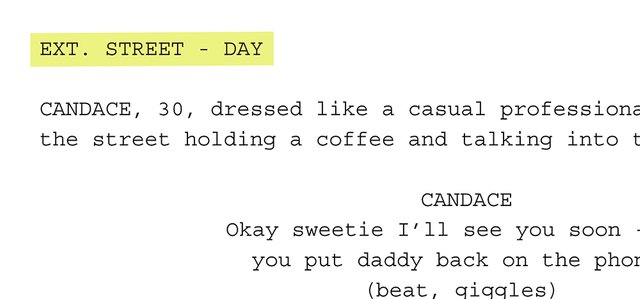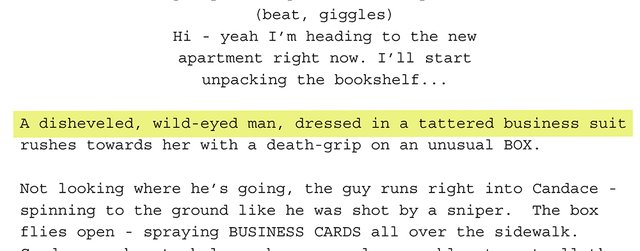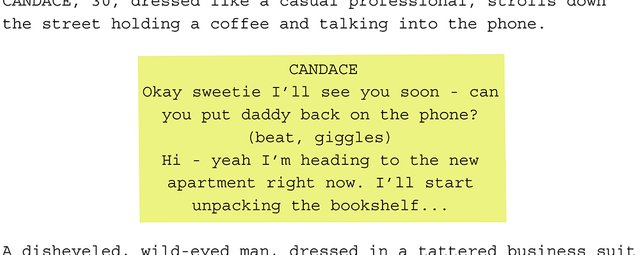Moviemaking Concepts: Pre-Production - The Script
Nearly every narrative film starts with a script, which is the foundation of the movie. There are also a few rules when writing them. Let's go over a few of those principles in today's vlog!
Video Transcript:
Hello! I am the artist known as DEROSNEC, and welcome to my bi-weekly vlog where I talk about making music, art, movies, and more.
I guarantee you that if you ask a bunch of people what they each think the most important part of making a film is, each person will give you a different answer. In my personal opinion, I’d say it’s the script.
The script is the foundation. It’s the story, it’s the characters, it’s the dialogue, it’s the places and props, the mood and the message. All of the particulars can be changed and tweaked over the course of the film being made (and it usually is, sometimes to a degree that it’s a completely different movie), but the script is the starting key to understanding what the film actually needs to get made.
The Story and Characters
At its most fundamental, the script is the original keeper of the story and its characters. It contains the beginning, the middle and the end, and tells us everything that we need to know about the people throughout.
It’s true that you can make a great movie from a bad script, but that’s a rare occurrence. Really, you should strive to have the most solid script possible from a story and character perspective before investing any time and money into a film.
Conversely, the opposite is also true - if you don’t understand the mechanics of a script or completely lose the story, you could have the best script in the world and come out with a terrible film.
The Format
If you’ve ever actually looked a script, you’ll notice that it’s formatted in a very specific way. Each new scene is denoted by what’s called a scene header, which tells us right off the bat some pretty important location and timing information, like if it’s an interior or an exterior scene or what time of day it is. At first this information may seem irrelevant, but it’s important for two reasons.
Firstly (...always firstly), the story. Say for example, if a spy is following someone in broad daylight, he or she would likely approach the situation differently than in the dead of night. Secondly, it helps give us a bigger picture of time in that we can understand what kind of timespan the entire movie is taking place over - a day? A week? A year? This all matters to... you guessed it, the story.
Reading on, there’s usually a physical description of the scene - important objects to our understanding the character or the story are highlighted, and characters are described in enough detail for the reader to be able to paint a visual picture as it’s read.
Dialogue is separated to show who’s talking and is squeezed into a smaller column down the center of the page, allowing for easy identification. Once in a while you’ll see a performance direction in there too, but this is generally frowned upon in a written script.
General Good Practices
In fact, there are a lot of things that good scripts don’t do which a lot of novice scriptwriters end up doing. Writing things like specific performance or camera directions not only bloat the script and make it difficult to read, but presumptuously take the control out of the hands of all the key creatives who are actually making the film. A good writer will trust that the director will translate the script to a visual medium in the best way possible, and will focus on telling the story.
Another thing that a lot of novice scriptwriters will do is rely too much on dialogue to tell the story - remember, film is a visual medium. Show, don’t tell, the story. There’s nothing more boring to watch than people talking about doing stuff without actually doing anything. That goes for real life, too!
Once the script is in a happy place (or close to it, at least), it’s ready to be turned into a film! But there’s still a lot of prep to be done before it’s ready to actually be shot. Next time we’ll talk about how the script is broken down and translated into the practical terms of actually making it.
Have you ever read a script before? Were you able to watch a movie in your head whilst reading it? Why or why not? Tell me about it in the comments.
Thanks for watching - hit that thumbs up button below - it helps me more than you know - and join the uncensored by subscribing to my Youtube channel, my newsletter, or by following me on facebook, twitter, and instagram! If you never want to miss a video, be sure to click the little notification bell icon, too.
NOTE: These Thursday Vlog transcripts can also be found published on my website: http://derosnec.com

















That's great! I have ambitions to write movie scripts in the future so this is very interesting…
Excellent! I can't recommend these two books enough to get you started and inspired: "Story" by Robert McKee and "Screenplay" by Syd Feild. Happy writing!
Excellent, thanks!
I have not ever read a movie script. Might be interesting to try though. I read some books movies were based on, but it isn't the same, as a movie is usually very loosely based on a book.
Looking forward to your next moviemaking post! :-)
Yes that's true, script adaptations have to be pretty different from the original books for a lot of reasons- mostly that they just don't translate to well to screen as they are! A script is definitely a different way of reading. I'd love to hear about it if you ever give it a try!
Congratulations! This post has been upvoted from the communal account, @minnowsupport, by derosnec from the Minnow Support Project. It's a witness project run by aggroed, ausbitbank, teamsteem, theprophet0, someguy123, neoxian, followbtcnews, and netuoso. The goal is to help Steemit grow by supporting Minnows. Please find us at the Peace, Abundance, and Liberty Network (PALnet) Discord Channel. It's a completely public and open space to all members of the Steemit community who voluntarily choose to be there.
If you would like to delegate to the Minnow Support Project you can do so by clicking on the following links: 50SP, 100SP, 250SP, 500SP, 1000SP, 5000SP.
Be sure to leave at least 50SP undelegated on your account.
Hello @derosnec, thank you for sharing this creative work! We just stopped by to say that you've been upvoted by the @creativecrypto magazine. The Creative Crypto is all about art on the blockchain and learning from creatives like you. Looking forward to crossing paths again soon. Steem on!